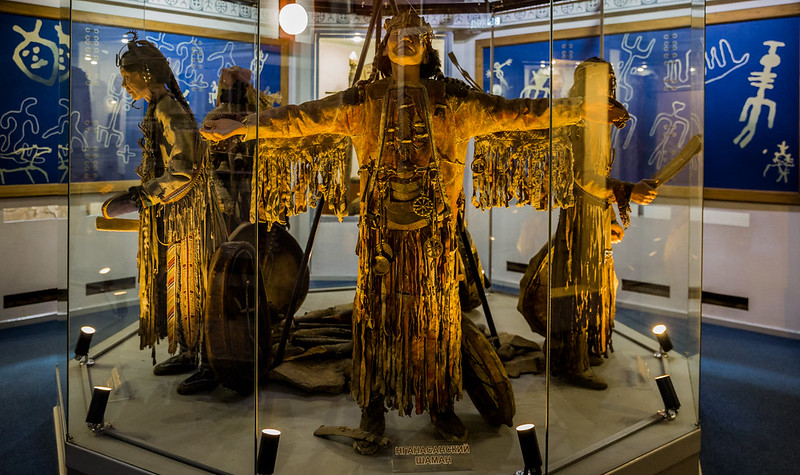Russian shamanism: 'Same rights as traditional religious denominations'
Appeal to the federal authorities: 'We too protect Russia's borders'. Until the state atheism of the Soviet Union, the Russian tsars did not want to interfere in the religious life of the native peoples of the Asian regions. The Orthodox clergy in Siberia have always lived with this entrenched presence. And after the long atheist interlude, this syncretism resurfaced as a confused form of 'religious revival'.
Moscow (AsiaNews) - The supreme shaman of Russia, head of the religious association of Kyzyl, capital of the republic of Tuva, of the Adyg-Eeren ("Spirit of the Bear") shamans, Kara-Ool Dopčun-Ool, has made an appeal to the federal authorities to grant shamanism the same rights as "traditional religious confessions".
At the same time, its representative Alena Muravere testified about the “mystical participation” of shamans in the war in Ukraine, with rituals practiced on the border territories: “we do not launch anathemas against the Ukrainians and we do not harm anyone, but we protect the borders of Russia."
The discovery of this form of Asian paganism dates back to the conquest of Siberia by the Russians in 1581, towards the end of the reign of Ivan the Terrible, thanks to the conquest expeditions of the hetman Ermak and the other Cossacks sent from Moscow.
The subjugation of the territories from the Urals to the Pacific Ocean lasted another three centuries, with much resistance from the local peoples. Yet, until the state atheism of the Soviet Union, the Russian tsars did not want to interfere in the religious life of the native peoples of the Asian regions, indeed they were partly fascinated by shamanism as a "way to reach the heavens".
The fact is that Siberia has been exploited primarily as a land of confinement and detention, with difficulty adapting to a very foreign and even hostile environment. To resist the extreme conditions, the natives of the European regions of Russia have over time combined their original habits with local customs, relying on the religions of the native peoples of Asia to obtain some help and comfort. The Orthodox Christian faith was seriously put to the test in the dark and cold of the taiga, where it was natural to seek the protection of the spirits.
The healing and regeneration rites were not specifically identified, and the exotic figure of the shamans was recognized over time, starting from the notes of 18th century travellers. The dark forces are feared by both Orthodox and pagan superstitions, which often intertwine and merge, drawing on the historical mix of paganism and Christianity of the conversion of Kievan Rus itself, at the origins of Russian history.
For a long time the only limitation to shamanism was the prohibition of propaganda in places inhabited by the Orthodox, but in fact shamans have always conducted their ceremonies undisturbed in all cities and towns.
The coexistence of people of very different origins, of various languages and cultures could not fail to create a very crude form of tolerance and mixing, to the point of speaking of "orthodox shamanism", the most extreme version of dvoeverie, the "double faith" of the Russians .
The Orthodox clergy in these regions has always been of a much lower level than in the European part of Russia, and has never had problems in combining the two faiths. After the long atheist parenthesis, this form of syncretism has returned to the surface as a confused form of "religious rebirth", which today is also defined as "neoshamanism".
The request to stand on a par with the Orthodox religion and other "traditional religions" (Judaism, Islam, Buddhism and Catholic/Protestant Christianity) is the definitive signal of the "plural" definition of the Eurasian identity of Russia, a country in which faith is supported above all by the interests of the State and by hostility towards "external" enemies, and then merging all internal differences into a single identity.
Photo: Flickr / Ninara
30/11/2021 09:29
20/11/2017 11:31







.png)










